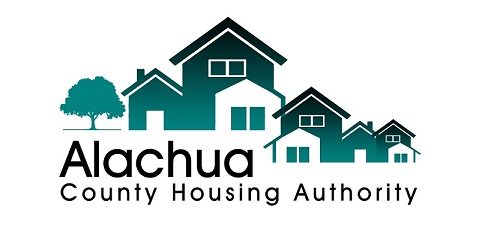Alachua County Fair Housing Ordinance
SourceURL:https://alachuacounty.us/news/Article/Pages/Fair-Housing-Month.aspx
The Human Rights Ordinance of Alachua County prohibits discrimination based on race, color, national origin, religion, disability, sex, marital status, age, sexual orientation, gender identity or expression or familial status in the sale or rental of housing.
The following are unlawful and discriminatory housing practices because of a protected status:
- Refusing to sell, rent or lease housing to an interested tenant or buyer.
- Applying different sale, rental, or occupancy terms for different people.
- Misrepresenting the availability of housing when housing is in fact available.
- Providing inferior conditions, terms, facilities, or privileges in connection with housing.
- Steering customers to/from a certain neighborhood, or refusing to serve certain customers by real estate professionals.
- Redlining or limiting lending in a particular area because of the demographics of that area or imposing different terms or conditions on a loan.
- Refusing to permit reasonable modifications when accommodations may be necessary for an individual with a disability to use and enjoy their dwelling.
- Harassing tenants and homeowners in connection with housing accommodations.
- Alachua County Fair Housing Ordinance Poster
- Housing Amendment Human Rights Ord Adopted 042319
For more information, or to file a Fair Housing complaint, contact the Alachua County Equal Opportunity Office at 352-374-5275. TDD/TTY users, call 352-374-5284 or 711 FL Relay.
Fair Housing Act of 1968
SourceURL:https://www.hud.gov/program_offices/fair_housing_equal_opp/fair_housing_act_overview#_The_Fair_Housing
HOUSING DISCRIMINATION UNDER THE FAIR HOUSING ACT
Housing discrimination is illegal in nearly all housing, including private housing, public housing, and housing that receives federal funding.
- The Fair Housing Act
- Who Is Protected?
- What Types of Housing Are Covered?
- What Is Prohibited?
- Additional Resources
The Fair Housing Act
The Fair Housing Act protects people from discrimination when they are renting or buying a home, getting a mortgage, seeking housing assistance, or engaging in other housing-related activities. Additional protections apply to federally-assisted housing.
Learn about the History of the Fair Housing Act, and read Examples of the many forms of housing discrimination.
Who Is Protected?
The Fair Housing Act prohibits discrimination in housing because of:
- Race
- Color
- National Origin
- Religion
- Sex
- Familial Status
- Disability
What Types of Housing Are Covered?
The Fair Housing Act covers most housing. In very limited circumstances, the Act exempts owner-occupied buildings with no more than four units, single-family houses sold or rented by the owner without the use of an agent, and housing operated by religious organizations and private clubs that limit occupancy to members.
What Is Prohibited?
In the Sale and Rental of Housing:
It is illegal discrimination to take any of the following actions because of race, color, religion, sex, disability, familial status, or national origin:
- Refuse to rent or sell housing
- Refuse to negotiate for housing
- Otherwise make housing unavailable
- Set different terms, conditions or privileges for sale or rental of a dwelling
- Provide a person different housing services or facilities
- Falsely deny that housing is available for inspection, sale or rental
- Make, print or publish any notice, statement or advertisement with respect to the sale or rental of a dwelling that indicates any preference, limitation or discrimination
- Impose different sales prices or rental charges for the sale or rental of a dwelling
- Use different qualification criteria or applications, or sale or rental standards or procedures, such as income standards, application requirements, application fees, credit analyses, sale or rental approval procedures or other requirements
- Evict a tenant or a tenants guest
- Harass a person
- Fail or delay performance of maintenance or repairs
- Limit privileges, services or facilities of a dwelling
- Discourage the purchase or rental of a dwelling
- Assign a person to a particular building or neighborhood or section of a building or neighborhood
- For profit, persuade, or try to persuade, homeowners to sell their homes by suggesting that people of a particular protected characteristic are about to move into the neighborhood (blockbusting)
- Refuse to provide or discriminate in the terms or conditions of homeowners insurance because of the race, color, religion, sex, disability, familial status, or national origin of the owner and/or occupants of a dwelling
- Deny access to or membership in any multiple listing service or real estate brokers organization
For more information and examples, visit Examples of Housing Discrimination.
In Mortgage Lending:
It is illegal discrimination to take any of the following actions based on race, color, religion, sex, disability, familial status, or national origin:
- Refuse to make a mortgage loan or provide other financial assistance for a dwelling
- Refuse to provide information regarding loans
- Impose different terms or conditions on a loan, such as different interest rates, points, or fees
- Discriminate in appraising a dwelling
- Condition the availability of a loan on a persons response to harassment
- Refuse to purchase a loan
For more information about discrimination in mortgage lending, visit Fair Lending.
Harassment:
The Fair Housing Act makes it illegal to harass persons because of race, color, religion, sex, disability, familial status, or national origin. Among other things, this forbids sexual harassment. Learn more about sexual harassment here.
Other Prohibitions:
In addition, it is illegal discrimination to:
- Threaten, coerce, intimidate or interfere with anyone exercising a fair housing right or assisting others who exercise the right
- Retaliate against a person who has filed a fair housing complaint or assisted in a fair housing investigation
Advertising:
For more information about advertising and the Fair Housing Act, visit Advertising and Marketing.

